15 Ways to Keep Your Sanity When Your Workplace Turns Toxic
Every employee wants to work in an office where their colleagues and boss greet them with a smile each morning, where everyone is eager to do their best work. However, it’s becoming more likely that your office will be filled with unnecessary drama and your coworkers will spend more time fighting amongst themselves than collaborating on an important project.
Toxic workplaces are becoming more common. More than half of tech employees believe their work environment is toxic. According to a 2018 study by Warble, 63 percent of respondents witnessed behavior at work that was disruptive to culture, productivity, and/or the business but didn’t report it to management or HR. Why? Because 46 percent of those respondents believed no action would be taken.
Even just one toxic employee can affect an otherwise productive team, according to research by Cornerstone OnDemand. Good employees are 54 percent more likely to quit when they work with a toxic employee, if the proportion of toxic employees on their team grows by as little as one on a team of 20, according to Cornerstone OnDemand’s report Toxic Employees in the Workplace. The study also found that toxic behavior is contagious and that employees are many times more likely to engage in toxic behavior if they’re exposed to other toxic employees.
Strategies to Combat Toxicity

“One of the best ways to fight against a toxic workplace culture is to keep yourself out of the fray otherwise your brain will get hijacked by the negativity,” said Tracey Adams, PhD, CEO and co-founder of ThriveOn Seminars in Portland, Oregon.
While it may seem counterintuitive, one of the most effective ways to fight against a toxic work culture is to model the behavior of the workplace you’d rather be working in, said Kathleen Landers, owner and director at Sequence Counseling and Consulting Services in Rockville, Maryland. By modeling behaviors that others aren’t doing, you might be able to gently turn the tide, she says, especially if you can find some allies to help amplify your ideas and model positive office behavior along side you. “This subtle approach is better than going to battle,” Landers said.
Here are 15 ways your workplace may turn sour and how to keep your sanity if that happens.
1. Your Coworkers Blame Each Other
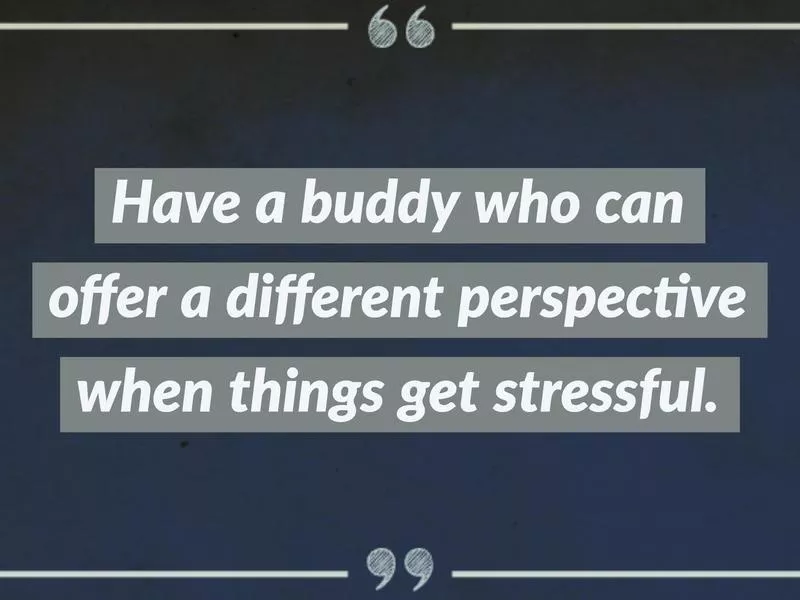
When the workload is heavy and deadlines are tight, it’s not unusual for coworkers to start pointing the finger at each other when something goes wrong.
One of the best ways to keep your sanity is to seek office friendships outside your work group so you’ll have a buddy who can offer a different perspective when things get stressful, Adams recommends.
While finding a work buddy outside your department might help you get through your day, you still have muddle through a tense meeting or two each week. The best way to take the wind out of criticism is to model for your colleagues how to accept responsibility, Landers says.
You don’t have to take ownership of the entire mess, she says. Just find one thing from the situation that you can claim responsibility for doing. For instance, if someone blames the mistake on unclear instructions, you can say, “That’s a good point. I felt like my email was clear. I apologize if it wasn’t clear enough.” Instead of responding to the attack, respond to the message that directions need to be easier to understand, she says. Your coworkers might be operating from a place of anxiety and fear but you can model how to accept constructive feedback. “If people can’t tolerate the idea that mistakes happen or that anything can be improved, nothing will ever change,” she said.
2. Happy Hour Becomes an Excuse to Criticize Management
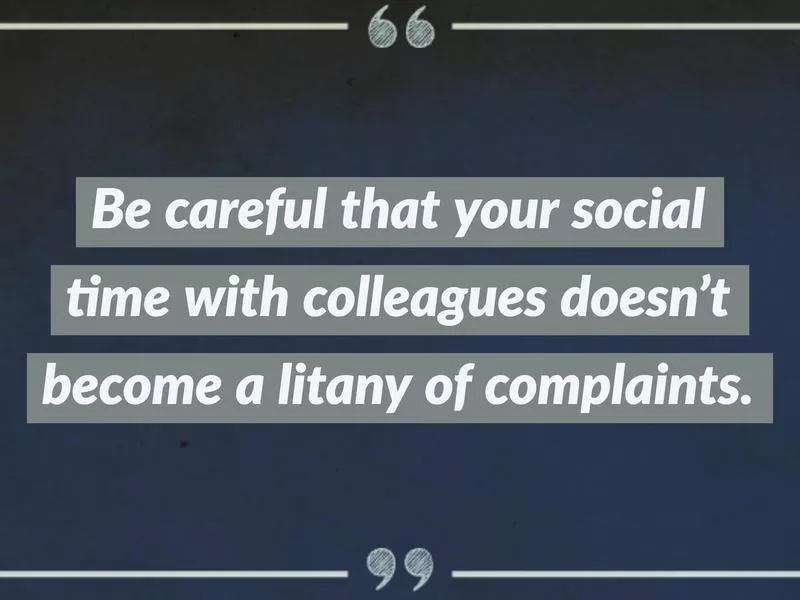
While it’s natural to grumble about the boss and seek solace with your coworkers after a tough day at work, you need to be careful that your social time with colleagues doesn’t become a litany of complaints.
Rather than becoming the victim, Adams recommends being a leader by resisting the urge to complain. If you’re out with coworkers and the mood turns dark, consider leaving rather than staying and feeding into the negative mood. You might also consider not going to happy hour every time the group gets together, Landers says. Or limit yourself to just one drink so that you leave before people start getting negative. This way you look like you’re part of the group but you aren’t feeding into the negative atmosphere.
Even if you do agree with your coworkers, be careful what you say, Landers warns. “You may be having a similar feeling and it might feel validating but remember, this is where you work and you’re going back there tomorrow,” she said. “That negative spiral isn’t going to help and it might get quoted back at the wrong time.” Rather than agreeing with a coworker, she recommends saying, “It sounds like this has been a tough day for you.”
3. Your Manager Isn’t Open to Other People’s Ideas

Some managers need to be in charge of every project and don’t want to hear other employee’s suggestions. They may see someone else with a good idea as a threat to their authority.
One way to handle a tyrant manager is make him or her feel like your suggestion was their idea by giving them partial credit for it.
It’s also helpful to determine what type of manager you’re working for, Landers says. “We would all like to believe our manager has our best interest at heart and loves being a manager, and is skilled at leading, but often that’s not the case,” she said. If your manager doesn’t listen to other people’s ideas and leads by fear and manipulation, you will never change them and they are unlikely to see your ideas as worthy of following, she says. In that situation, it’s best to keep your head low and apply for other jobs.
But maybe your manager is inexperienced and isn’t open to new ideas because of their own insecurities. Rather than feeling bad about what you’re not getting from your boss, change your perspective and think about ways you can help your boss, Landers says. Focus on helping your boss and his or her ideas to succeed and, after you have developed that trust, the timing might be better for you to put forth your own ideas, she says.
4. No One Is Happy to Be at Work
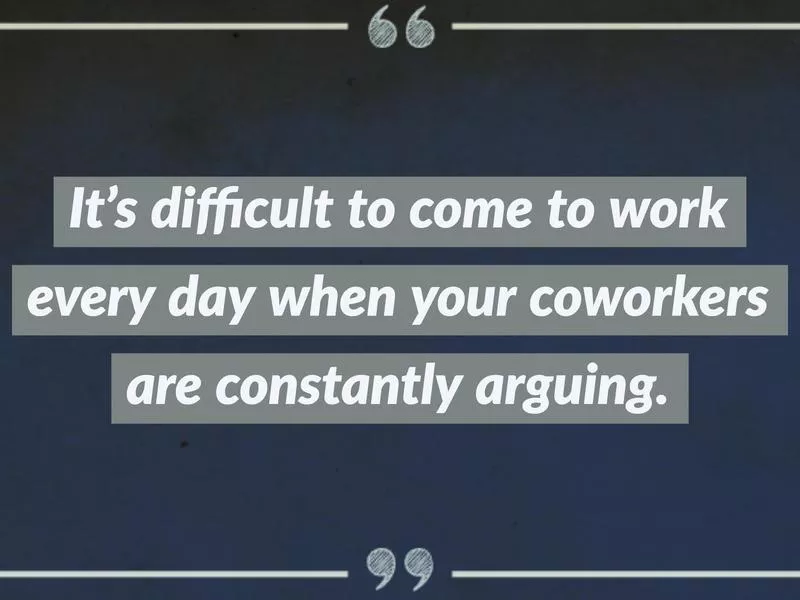
It’s difficult to come to work every day when your coworkers are constantly arguing about assignments, responsibilities, and deadlines. In fact, less than one-third of employees say they feel engaged at work, according to Gallup’s State of the American Workplace.
One way to remain positive is to find ways to connect to people outside of your office. Schedule lunch or coffee with a friend who works nearby or take a walk during lunch, even if it’s just a quick walk around the block.
Another way to be happier at work is to turn your job into something you want to do. You can shape your job into something you’re excited about doing each day by diagramming your tasks to better align with your motives, strengths and passions, according to this Harvard Business Review article.
5. Criticism Is Never Constructive
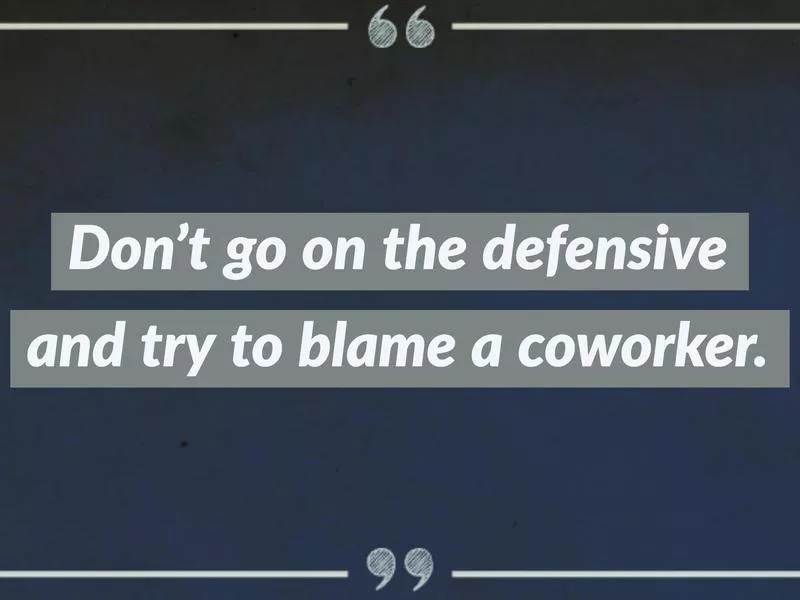
In a tense workplace where everyone is quick to blame their colleague for a missed deadline, there’s often little to no feedback, and when you do get feedback it’s typically negative and may feel personal.
Although it might be difficult, do your best to listen carefully, to ask your boss specific questions about better ways to handle the situation or avoid a similar incident in the future, and offer to resolve the problem. Don’t go on the defensive and try to blame a coworker or prove that your boss is wrong. “Going on the defensive is counter productive,” Landers said.
6. Your Coworkers Are Really Annoying
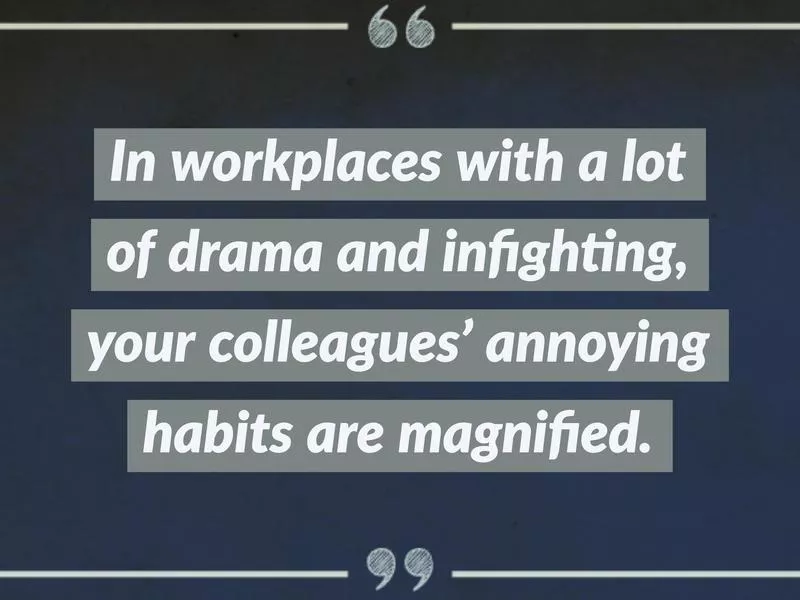
Every workplace has annoying coworkers. But, in workplaces with a lot of drama and infighting, your colleagues’ annoying habits are magnified.
In a recent study by Olivet Nazarene University, 73 percent of respondents said two to five coworkers’ behaviors are grating on a regular basis. Their most common grievances were loudness and complaining (49 percent), followed by gossip and bullying (32 percent).
Rather than asking your coworkers to lower their voices, consider bringing in noise-cancelling headphones to drown out their loud conversations.
7. There’s Too Much Gossip
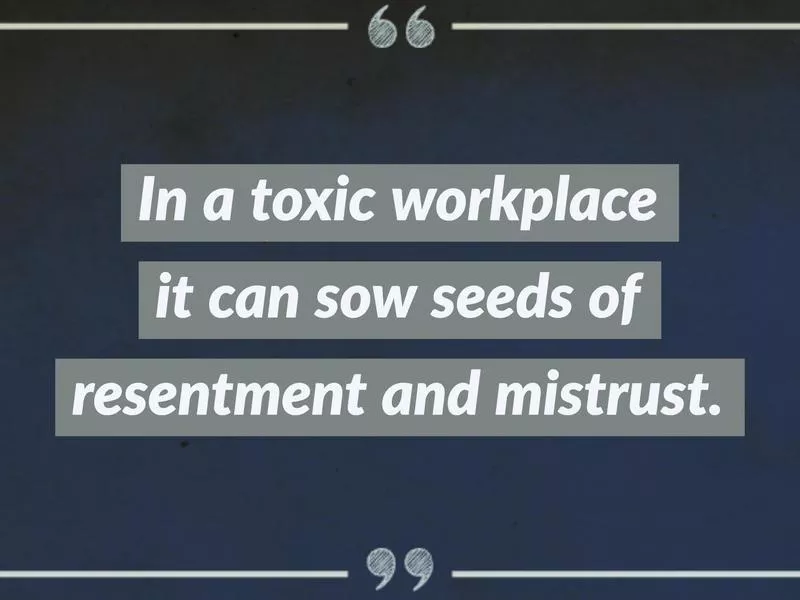
Office gossip is a huge distraction, and in a toxic workplace it can sow seeds of resentment and mistrust.
If you hear gossip about a coworker, you can diffuse the situation by dismissing the gossip and changing the subject, or questioning the gossip by saying the story doesn’t ring true. You could also model good behavior by not participating in office gossip. If someone tells you a juice tidbit, don’t repeat it. Or turn the gossip around by saying something positive about the person or complimenting him or her on successfully completing recent work project.
8. Your Boss Is a Bully
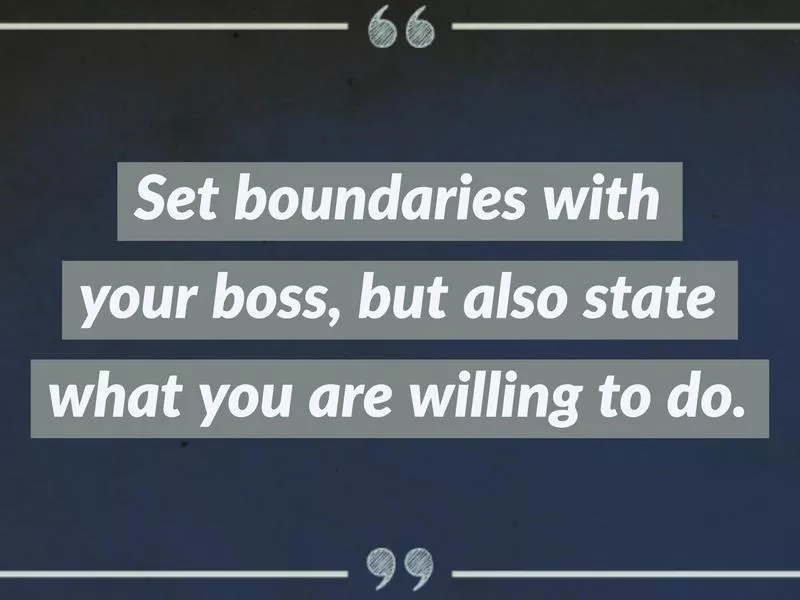
A study by recruiting firm Jobvite shows that more U.S. workers have been bullied at work in the last two years (14 percent) than sexually harassed (9 percent). Yet, bullying is less likely to be reported than sexual harassment. The report finds that 58 percent of job seekers who have been bullied at work in the last two years didn’t report it compared to just 33 percent of those who reported harassment.
However, there are different forms of bullying. Being told you’re lucky to have a job, or being threatened with a demotion if you won’t work late on a Friday night, are definitely signs that your workplace has gone sour. However, in most cases, these are often just empty threats.
Set boundaries with your boss by explaining that you have a conflict that prevents you from work late Friday nights but also state what you are willing to do, such as work through lunch or come in a half hour early on Monday.
9. Cliques Rule the Office

Without a strong manager to keep employees engaged and happy, it’s not unusual for cliques to form and for employees to bully each other.
According to a CareerBuilder survey, 43 percent of workers said cliques are common in their office. Many also admitted to watching a certain TV show or movie (21 percent), or making fun of a coworker (21 percent) so they would fit in. Rather than be a lemming, stay true to your own values.
10. Everyone Focuses on the Negative
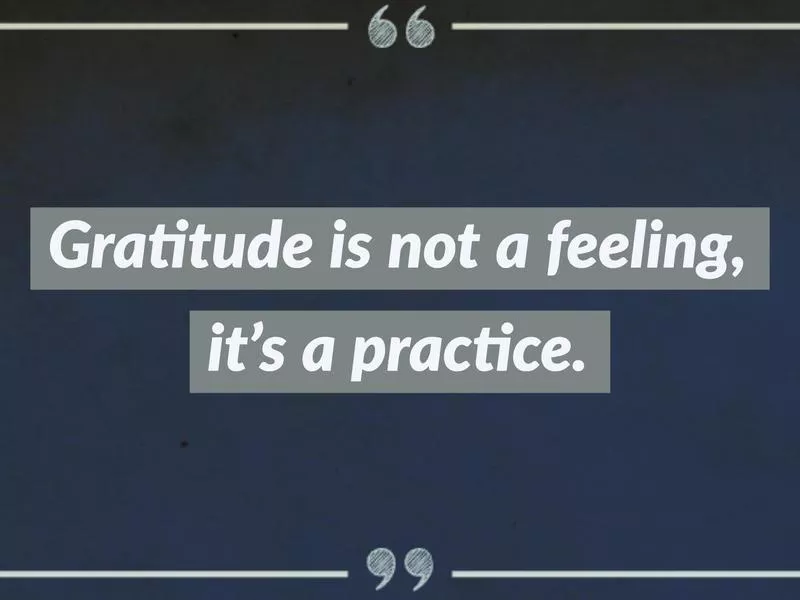
When deadlines are missed and clients are unhappy, it’s hard to stay positive.
“Gratitude is not a feeling, it’s a practice,” Adams said. “If you practice gratitude as a verb, and not a feeling, then you are training your mind to see the positive.”
11. Meetings Are a Waste of Time
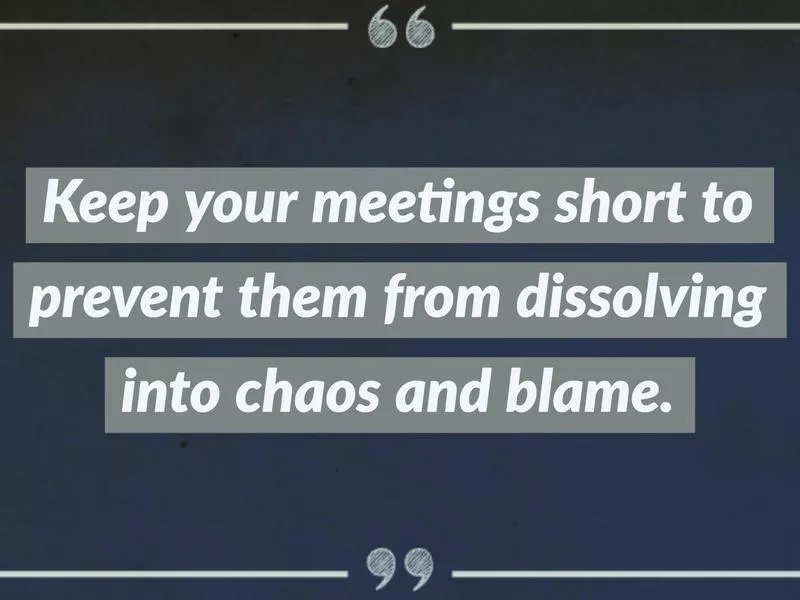
It’s not uncommon for toxic workplaces to have back-to-back meetings that lack focus and purpose.
Keep your meetings short to prevent them from dissolving into chaos and blame. Consider replacing your department’s two-hour meeting with a 15-minute standing meeting where people quickly share what they are working on and what they need help with, and then get back to work.
12. Meetings Are Repetitious
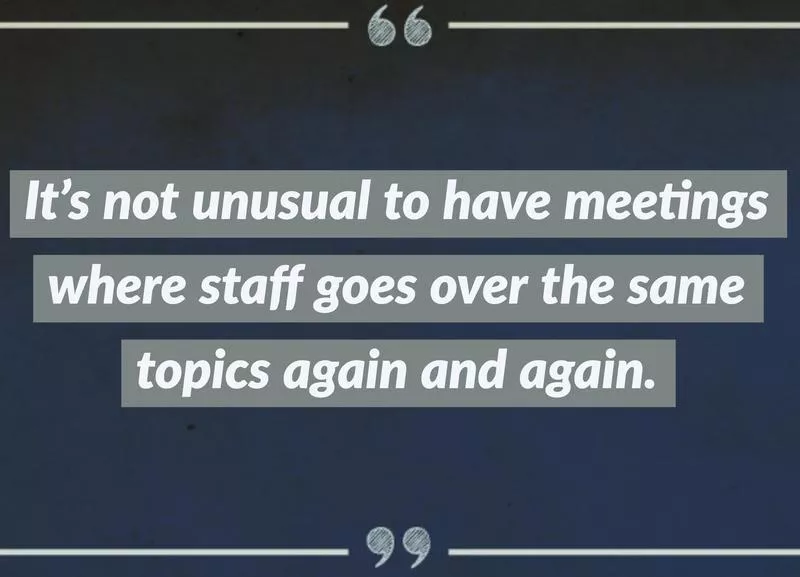
When work is stressful, it’s not unusual to have meetings where staff goes over the same topics again and again, especially if there is no decision or path forward at the end of the meeting.
After each meeting, follow up with an email to your boss and coworkers about what was decided, what the action items are, who is responsible for each, and what issues were unresolved and need to be discussed at the next meeting. If there’s nothing new to discuss, consider canceling a standing meeting. Perhaps the issue can be resolved more easily through email or online chat without taking up people’s valuable time to complete their work.
13. Nobody Shares Information
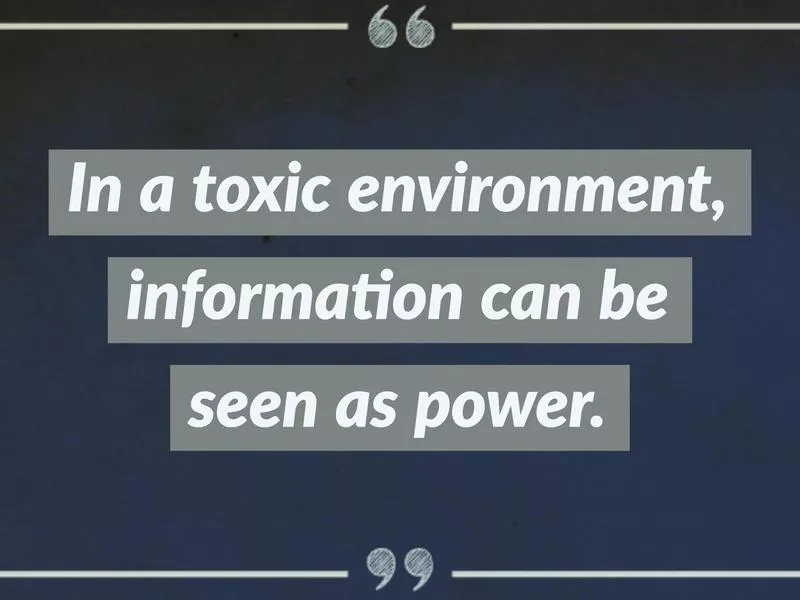
In a toxic environment, information can be seen as power and often colleagues are reluctant to share what they know because they feel it gives them a competitive edge. In a workplace where employees don’t feel safe or they feel powerless, they are often taught to be divided instead of united, Landers says.
Lead by example and freely share any information that will benefit the group. Try to gain your coworkers’ trust so they will share information with you. Know that this might ruffle some feathers, Landers says, but you can gently test the idea and model different behaviors for your colleagues. You can also try to demonstrate to leadership how better communication among staff will result in better problem solving, she says.
14. There’s No Career Path
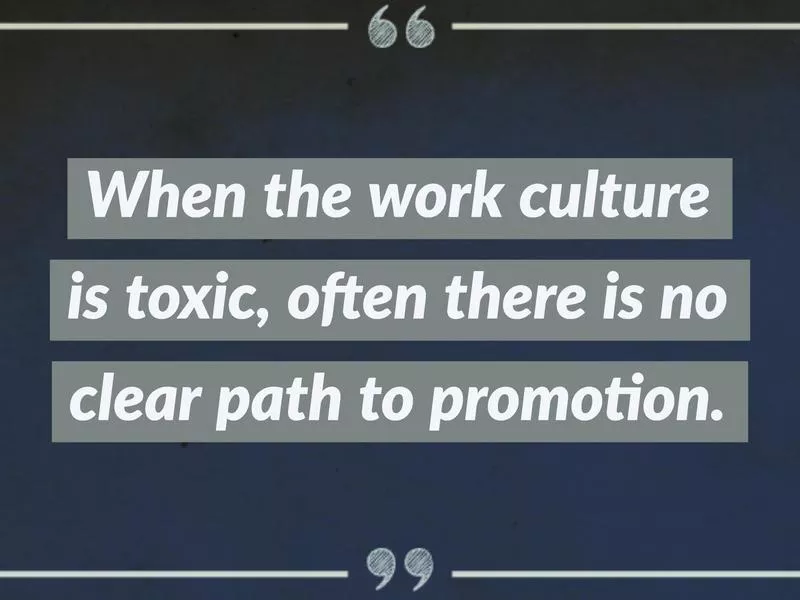
When the work culture is toxic, often there is no clear path to promotion. It’s not unusual for annual reviews to be delayed by weeks or even months, and when your boss does get around to doing your a performance review, it’s often a cursory write up and a quick meeting.
If that happens, take the time to write up your own performance review outlining in detail what you have accomplished, what hurdles you’ve overcome, and how your boss can help you do your job better.
You might also want to take a step back and consider how your personal life fits in with your career goals, Landers says. Many people feel like they have to just keep getting better titles and earning more money, she says, but there is nothing wrong with digging in and getting really good at something rather than continuing to move up the ladder.
Also consider whether you can build a career path for yourself. If an organization is flexible, often job openings are created for the person who can show what they can do, Landers says. “Think about what the organization could be doing that aligns with your skills,” she said.
15. There’s a Lot of Turnover
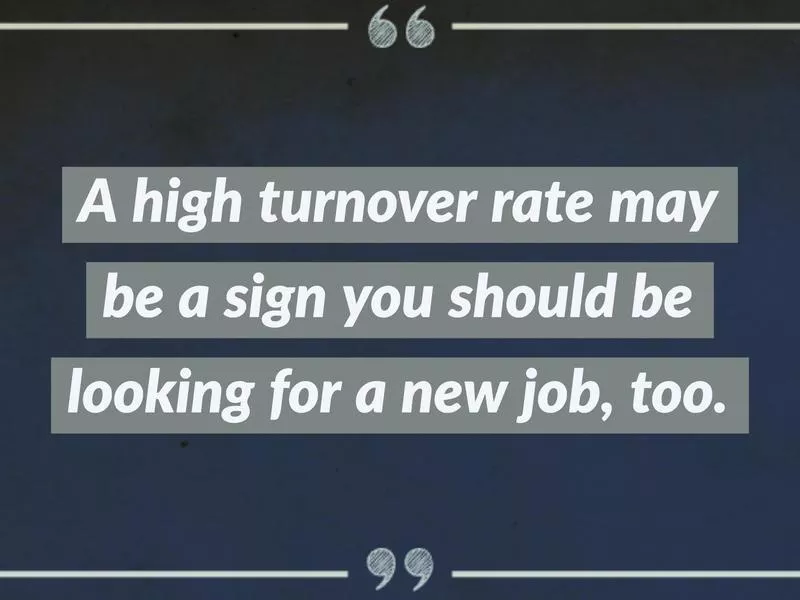
Challenging workplaces have a hard time keeping good employees engaged and on the payroll. Constant staff changes can make it impossible to finish projects on time or keep clients happy.
In a high-turnover office, it’s not unusual for each employee to be expected to pick up extra work while management tries to hire someone new. A high turnover rate may be a sign you should be looking for a new job, too.
However, some organizations are built around the idea that they hire new people, give them a good job to put on their resume and then they move on, Landers says. Some companies aren’t interested in creating a culture where people want to stay long term, she says. “That’s like saying, ‘I’ve been in college for four years and everyone keeps leaving,’” Landers said.
Determine if it’s natural for people to be leaving once they’ve mastered their job or if people are actually fleeing the workplace, she says. If it’s the latter, it might be time to move on, too.